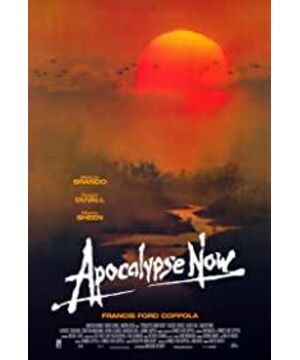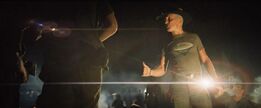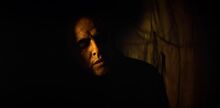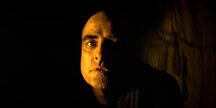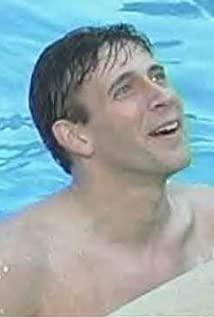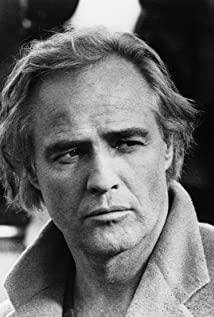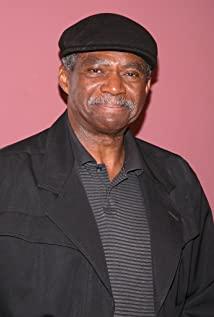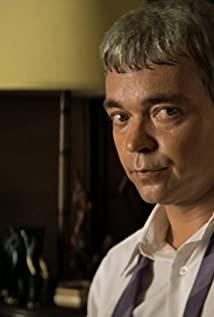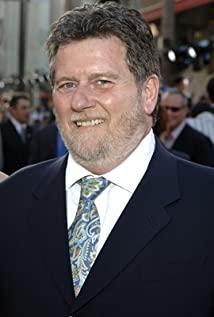If you are looking at Marlon Brando, you may be more disappointed.
Apocalypse Now looks like the second collaboration between Francis Ford Coppola and Marlon Brando after The Godfather .
However, the real male lead is actually Martin Sheen.
Martin Sheen rose to fame with his feature debut with Terrence Malick, "Bad Mountains and Bad Waters," and then starred in the European disaster film "Cassandra Bridge . "
After the 21st century, his more well-known works include "The Cat and Mouse Game" , and the American drama "The White House" is his absolute masterpiece.
If it's still unfamiliar, Ben Parker in "The Amazing Spider-Man" is a little familiar. That's Martin Sheen.
Originally, according to Coppola's idea, he wanted to invite a bigger actor than Martin Sheen to play Captain Willard throughout the film.
The first choice is the tough guy Steve McQueen, who is as famous as Dustin Hoffman. In 1973, the two top Hollywood stars cooperated with the box-office reputation "Papillon" .
But because the filming of "Apocalypse Now" is expected to go to Southeast Asia for at least 3 months, a popular superstar like Steve McQueen has no time to play with you, even if the inviter is such a prosperous Coppola. Great guide, you can only choose to refuse.
Likewise, Al Pacino, who had worked with Coppola on two "The Godfather" films, didn't want to travel such a long distance to turn it down. Otherwise, Apocalypse Now, with its gimmick of two generations of godfathers reuniting, would definitely be better at the box office.
Spending a lot of money to invite Marlon Brando, Coppola certainly did not let him make soy sauce. He plays Kurtz, the legendary U.S. military that Captain Willard is looking for in the story.
Marlon Brando's role is far less than that of Martin Sheen, but his place in the film is just as important. If he wasn't heavy enough, the audience would be even more disappointed.
It's never been easy to work with a talented actor as arrogant as Marlon Brando. When filming "The Godfather" , Brando needed a special cue card to read his lines more accurately, because he almost never recited his lines during filming.
An important reason why Coppola invited Brando was that he believed that Brando must be very familiar with the original novel "Heart of Darkness", so it should be much easier to read the lines. Unexpectedly, Brando knew nothing about this novel, so in the movie, he often read the lines while looking at a book or paper.
The most troublesome thing is that Brando came with a fat belly, and Kurtz is a tall and thin man in the original book.
Coppola can only modify the settings, and try not to let Brando show his belly, and most of the shots use half-length close-ups.
Fortunately, Brando showed his due strength, and Kurz was given a sacred color.
However, Brando's performance was not particularly stunning because of the "Godfather" pearls.
The fatal problem is not that Brando failed to surpass the classic image in "The Godfather" , but that Coppola put him in the final climax before appearing.
It's okay to have a big name in the finale. The problem is that Coppola is too much to test the patience of the audience.
The 147-minute public release version is okay, but the 196-minute director's cut version will start with the film and wait 2 hours and 40 minutes before finally seeing the long-awaited Marlon Brando.
So, if you only come for him, the probability of disappointment will outweigh joy.
After the success of the first two "The Godfather" , Coppola's ambition is no longer satisfied with just making a profitable commercial blockbuster.
He wanted to be more artistic, more anti-type, more unprecedented.
Indeed, "Apocalypse Now" is a high-level masterpiece, and in the war genre, it is at the top level in film history. In order to allow the film to participate in the exhibition, Cannes abolished the rule that the Palme d'Or winning directors could only participate in non-main competition units (Coppola won the award for "The Great Conspiracy of Eavesdropping" in 1974 ), and specially modified the theater sound to meet the needs of the film. Coppola's screening request.
As a result, Apocalypse Now shared the Palme d'Or with The Tin Drum before production was completed.
In order to achieve the ultimate sound effect, Coppola wasted a lot of time. He used the most advanced Dolby stereo at the time, with five channels to cover the sound wall, which further extended the post-production time.
In the end, the golden man trophy with the best sound was exchanged, which was not a waste of effort.
However, at that time, most theaters did not support his complex sound effect technology, and most audiences could not feel it.
The most is to appreciate the beautiful photographic images and admire the real bombing scene of the epiphany.
As for the story, there are more than two words.
torment.
"Apocalypse Now" tells the story of Captain Willard receiving a mission to assassinate Kurtz, a former U.S. military veteran who proclaimed himself king in Cambodia.
The process of Willard's mission was torturous. After he crossed the Vietnam War front and arrived in Cambodia, half of his original teammates were gone.
After meeting Kurz, he was tortured from physical to mental...
Coppola presented Willard's search for Kurtz in a chronological manner.
Although there is a big suspense like what kind of magical character Kurtz is, and there are thrilling parts on the road, the overall rhythm of the film is really too slow.
Most of the time, Willard and his party were just chatting.
Literary plays are far more than action scenes.
For ordinary viewers, this is simply torment.
The slow pace was a flaw by Coppola's own admission, so much so that he later made a final cut, which was reduced to 183 minutes.
It is also widely criticized for being too preachy.
Kurz is a value output point. He personally experienced the Vietnam War, and his words are authoritative, not to mention that he is worshipped by countless people;
In the passage of the encounter with the French, the author's point of view is simply written directly on the lines, indicating that "the Vietnam War was a war of nothingness".
Then "The Godfather" also has a preaching flavor, why is it not complained about?
Because that's based on successful character building. What a charismatic character says is always convincing.
Kurz's role is limited, and his image is not as flesh-and-blood as the godfather; on the French side, he is a bit more instrumental, and exists only to allow the author to express the theme.
For this kind of preaching, it's okay for the audience to agree. Fortunately, "Apocalypse Now" is anti-war, and everyone generally accepts it. However, some experienced viewers will feel particularly depressed.
Coppola tried to get away from doing otherworldly things, but had no time to care for the feelings of the audience. This makes the film's strengths and weaknesses clear. Of course, you can also think that the shortcomings of the slow pace and too much preaching are not shortcomings, but Coppola's choice of expression.
But some critics don't see it that way.
"This is the biggest disaster for Hollywood in 40 years."
This comment made Coppola brood, and he can still bring it up in interviews after many years.
Perhaps this is indeed a disaster.
Inside and outside the play.
inside the play.
It is not difficult to find that almost all the characters, including Willard, are madmen who behave abnormally.
The first person I met was Bill Gilgo, a lieutenant colonel who wanted to surf while fighting;
The barracks where "Operation Grande" was carried out, where large numbers of soldiers rioted because of the arrival of playboy girls;
Comrades with different personalities either lose their minds gradually, or lose their lives instantly;
The French who seem to retain their civilization are actually angry youths full of complaints.
Finally got to Kurtz and everyone went crazy.
Including Kurz.
The war turned Kurtz into an isolated lunatic who, ironically, was seen as a great all-powerful god.
The most amazing thing about Apocalypse Now is that what you see is a bunch of lunatics, but everything seems to be working normally.
Soldiers are fighting wars, performing tasks, or holding a labor party, which is not surprising.
But think again, is the culprit that drove them into lunatics, war, itself a normal thing?
War is a disaster, distorting human nature and creating trauma.
The bigger disaster is that mankind sees war as a normal thing.
Was turned into a madman, I don't know what happened.
off-screen.
Coppola's shooting, like what happened to the US military in Southeast Asia, experienced a disaster.
The Vietnam War was officially over in July 1976, and Coppola began filming in March.
The Philippines, the location of the filming, is relatively safe. Unexpectedly, the local bad weather has become the biggest obstacle. A heavy rain in May almost destroyed the set that the crew had worked so hard to build, and the filming stopped for a while.
Things seemed to be going well in June with the addition of Marlon Brando, but the budget was overrun, and Coppola didn't finish production until the Vietnam War really ended.
The reshoots began in 1977, and the protagonist, Martin Sheen, suffered a heart attack and nearly died on set. So much so that some of the footage was shot with a stand-in.
After 16 months of shooting and 3 years of post-production, "Apocalypse Now" was completed in 1979.
Coppola gambled his own fortune to make a great war movie like crazy.
Really, it's quite appropriate to change the title to "Crazy".
The more widespread misconception is that the failure of Apocalypse Now caused Coppola to go bankrupt.
And at that time, the film crew cut a lot, so that after the director's cut version came out, the word of mouth turned over.
In fact , "Apocalypse Now" made a profit at the box office, and Coppola's own economic crisis had nothing to do with the film.
But it is certain that his ambitions have disappeared with the disappointment of this masterpiece.
After the 1980s, Coppola stepped down, refusing to cater to the popcorn era.
Like Kurtz, he became an isolated lunatic.
View more about Apocalypse Now reviews


